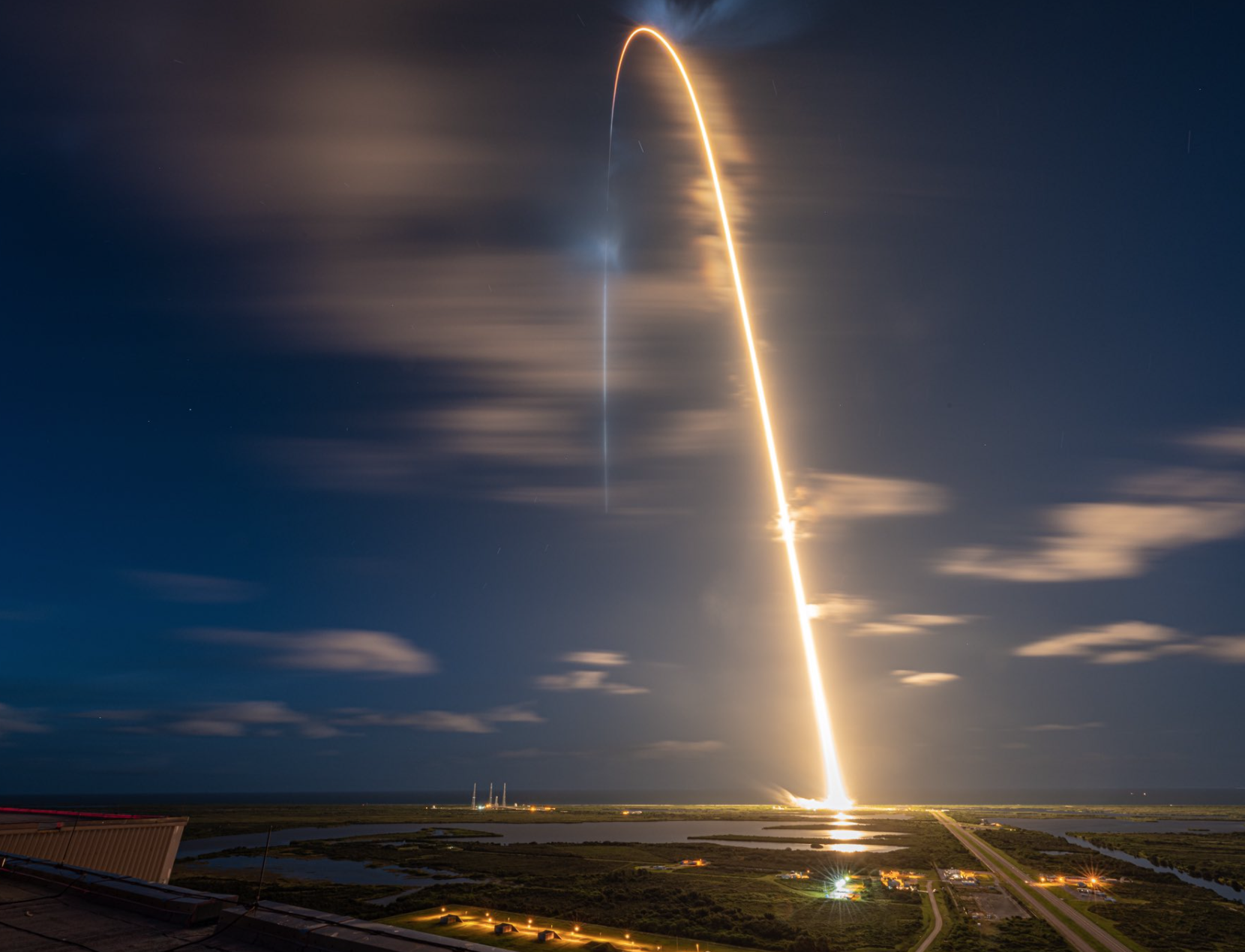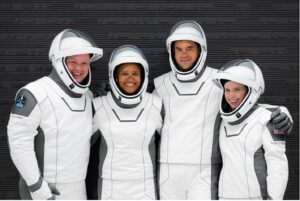First All-Civilian Crew Rockets into Orbital Space
 Launch of the SpaceX Innovation4 capsule on a Falcon 9 as seen Wednesday night from Cape Canaveral, Florida. Credit: Inspiration4 / John Kraus: http://www.flickr.com/inspiration4photos
Launch of the SpaceX Innovation4 capsule on a Falcon 9 as seen Wednesday night from Cape Canaveral, Florida. Credit: Inspiration4 / John Kraus: http://www.flickr.com/inspiration4photos By Dennis Thompkins
For the first time in space history, an all-civilian crew is traveling in Earth’s orbit without command and control from a government space agency.
The SpaceX Inspiration4 launch on Sept. 16 marked the first orbital flight with no professional astronauts on board. It also set as precedent the first time an onboard pilot was not in control of the spacecraft. Although the four private astronauts were trained in case of emergencies, the flight will be automated from ground stations as the crew orbits 364 miles above the Earth–more than 115 miles higher than the International Space Station.
This is the third private commercial spaceflight since July.
Previous flights such as Jeff Bezos’ Blue Origin suborbital flight on July 20 included the oldest and the youngest people to travel past the Kármán line, which, at about 62 miles above Earth, is widely considered the boundary of space. Billionaire Richard Branson’s Virgin Galactic suborbital flight on July 11 reached an altitude of about 53 miles above Earth.

From left to right: Chris Sembroski, Sian Proctor, Jared Isaacman, Hayley Arceneaux
(Credit: Inspiration4/ John Kraus)
The Inspiration4 crew has four members: Jared Isaacman, the billionaire who founded Shift4 Payments and purchased the flight; Hayley Arceneaux, a cancer survivor and physician assistant at St. Jude Children’s Research Hospital; and Sian Proctor and Chris Sembroski, who won tickets through a fundraising campaign. Arceneaux, at 29, becomes the youngest American to fly in space and the first person to fly in space with a prosthesis.
The crew will have a rare chance to conduct medical experiments and record health data for future human flights. This may lead to new discoveries as the crew wasn’t required to take a rigorous medical disqualification process that professional astronauts undergo. They will also be taking multiple items into space with them that they will auction off as part of a massive fundraising effort for St. Jude. The flight will last for three days — Bezos’ and Branson’s flights were about three minutes in space for comparison.
The Space Report conservatively placed revenue from commercial human spaceflight in 2020 at nearly US$60 million, based largely on public filings from companies such as Virgin Galactic and Blue Origin. The $60 million represents two-year revenue growth of 1,360%. With the announcement of Virgin Galactic’s ticket increase from $250,000 to more than $600,000 following its successful suborbital flight in July, and with SpaceX’s Inspiration4 orbital launch, this sector of commercial space revenue is likely to grow significantly throughout 2021 and the coming years.